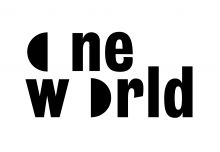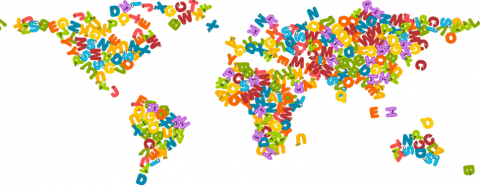About the topic of consciousness, a lot is still unknown. The more that is known about the human brain and behavior, the less there is known about consciousness and the more questions we have. The way we perceive consciousness has to do with the own perspective. Everyone sees things differently and has their own perspective. With the issue of consciousness, one must look at the objective and subjective world. It idepends on your own knowledge of some common bottlenecks that ensures that you can get answers to certain questions about this matter.
The definition of consciousness can be divided into two types of theories. First, there are the monist theories that state that there is only one matter. Second, there are the dualist theories that state that there are two matters. Descartes was a supporter of dualism. He is best known for the statement 'I think, so I exist'. He said that even when you doubt everything, there is always something that still exists and he therefore mainly looked at things that persisted after doubt. According to him, there is a difference between extensive material, such as our body (physical), and undivided material, such as our thinking (mental). according to him, here must be a relationship between the physical and mental aspects and these interact with each other; they influence each other. This theory is also known as substance dualism.
This theory is however not supported by everyone. From the ordinary-language philosophy perspective, it is thought that many problems arise because the language used to describe mental processes is not clear or is used incorrectly. This idea is mainly supported by Ryle. This researcher tried to bring behaviorism and dualism together in one theory. He supports the idea that the mind is what the brain does which we call functionalism. There is less proof for the existence of awareness. It appears that there is a lot of overlap between how people think about consciousness, reason and the self.
In 1977, Popper and Eccles proposed the dualistic interaction theory. They thought that the processes in the brain could be influenced by the feeling of having a self. This would also lead to the feeling of having a free will and subjective experience. This idea was also supported by Chalmers in 2007. He believes that experience comes from physical processes without the physical world playing a major role. This involves obtaining physical and unimaginable information.
Dennett adheres to the same ideas as Ryle does by stating that you should not accept the theories of dualism. Yet it is difficult to avoid doing this. He saw consciousness as a theater which he called the Cartesian Theater. As soon as you say that something is present in your consciousness, it is as if you are the audience of your own show. You are watching what is happening on stage.
Another approach is the materialistic approach. This approach states that the interaction between all factors already have been established and consciousness can no longer play a role. This includes the identity theory (stating that mental status equals brain status) and functionalism (stating that mental status equals functional status). There is no room for a subjective approach in this theory.
In addition, there is the idea of epiphenomenalism. This is the idea that a mental status is caused by events, the mental status has no effect on these events. This does not seem to exist in reality because it would mean that we can never talk about an event.
With the extreme theories, it is difficult not to fall back on theories of dualism. One way to do this is by believing in panpsychism: This theory states that all mental operations are conscious in a certain way. The extreme version of panpsychism even believes that all elements are conscious, even clouds and rivers, which would mean that anything has a certain level of consciousness.
Psychology was introduced in order to describe the philosophy of mental operations. Later it was seen as a science. In his book published in 1890, James described various aspects of consciousness. He viewed psychology as a science explaining different operations of the brain. This can be emotions for example but also about awareness. Awareness has no specific definition. James has done a lot of research about this and he also regonized the role of physiology. He studied the field of psychophysics, in which the observations and physical stimuli are combined.
During the same period, Helmholtz studied the speed of the signals that move from the brain to the nerves. He thought he had also measured consciousness with this, but he had in fact only measured the process described above. His assumption has however led to the field of phenomenology. This field mainly concerns the subjective experience. It was based on the idea that consciousness is about an object or event. This object is not about anything else. In this context, subjective experience is important because it creates awareness.
Wundt used introspection, which is about the way someone feels inside. According to him, there are sensory characteristics (such as light) and affective characteristics (such as pleasure). A combination of these two characteristics could lead to awareness. A problem with his experiments was that they required reportation of what you had done or what you felt. This only caused a disruption in the actual thoughts and feelings of participants.
Watson is the founder of behaviorism which is based on predicting and controlling behavior. Behaviorism allowed for behavior to be measured reliably. Because of his theory, the concept of consciousness has been driven further and further away from psychology. Many of Watson's experiments and thoughts stemmed from Pavlov. Skinner also played a role in studying operant conditioning. This approach was helpful for research towards memory and learning but less for research regarding consciousness.
In the end, consciousness was reintroduced into psychology and James's book played a role in this. In his book, he assumed radical empiricism: Experience is linked to meaning. With the introduction of computers, more attention was paid to the connections that might constitute consciousness. An approach that combines the feedback between the brain, the body, and the world is used to explain that the brain is constantly trying to combine sensory input with its own expectations. Vygotsky stated that it is much more dependent on social interaction. There is still much unclear today.
The term consciousness refers to subjective experiences in this summary.
A change in consciousness never happens without a change in the brain; and that never happens without a change in consciousness. According to Chalmers, the problem is that consciousness is related to experience. Little is known about experience in scientific terms. This makes it difficult to understand consciousness from a scientific basis.
Nowadays, it is mainly thought that what happens in the nervous system is unconscious but can eventually lead to a conscious experience. This interaction was also described in Freud 's psychodynamic theory. The unconscious factors: id, ego, and superego would eventually come back in more conscious situations such as dreams. However, Freud's research was not always reliable and therefore this theory is no longer seen as a possible explanation of consciousness.
It is difficult to distinguish consciousness and the subconscious mind.





















